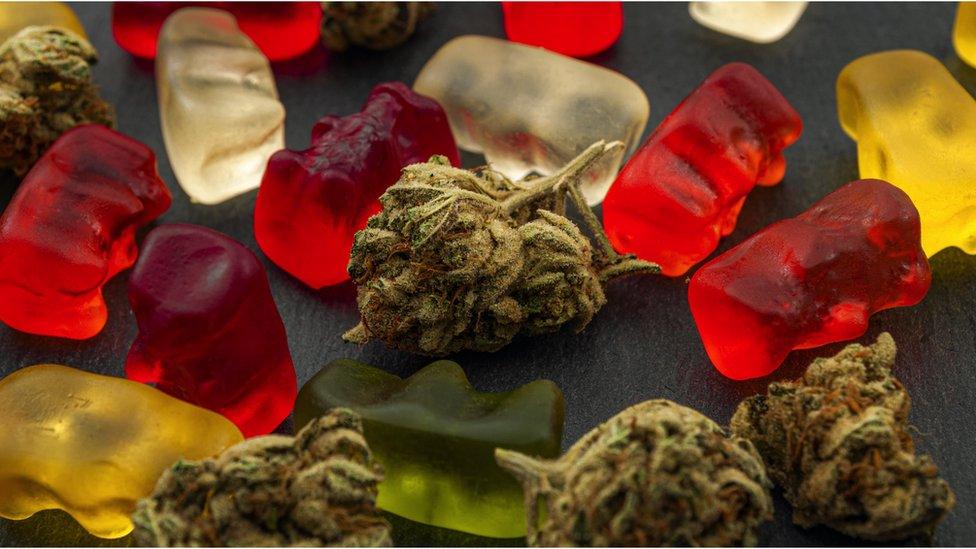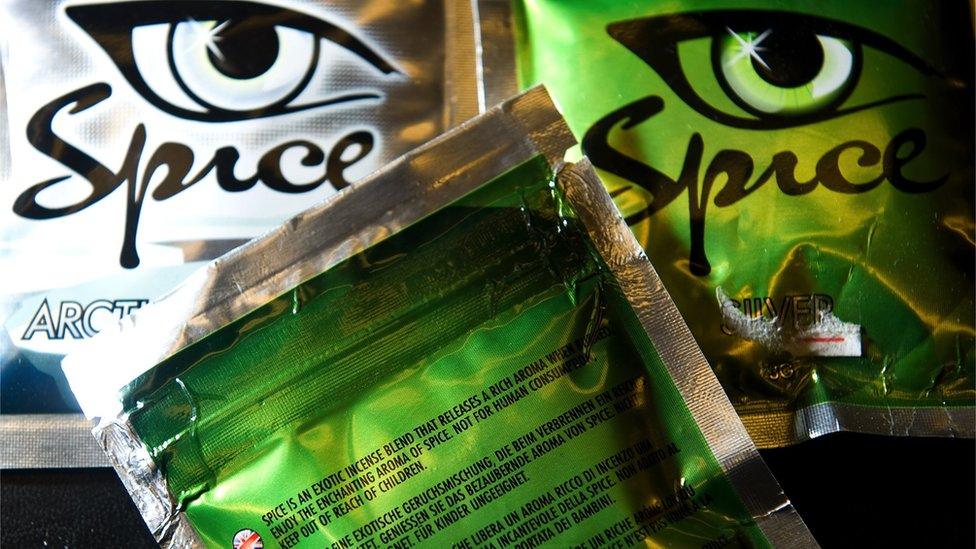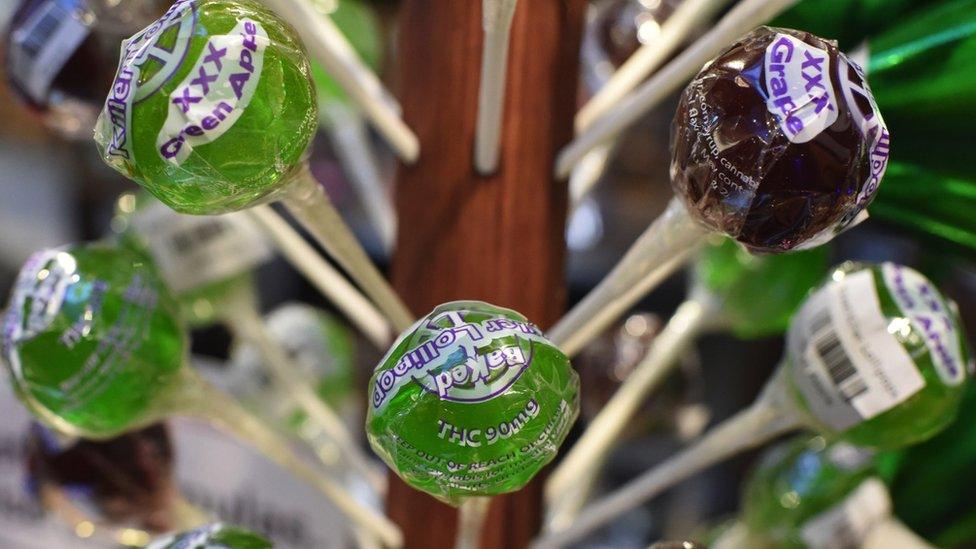Experts issue warning over cannabis sweets laced with Spice
- Published

A drug testing charity is warning dangerous synthetic cannabis, sold as marijuana sweets, could be putting buyers at risk of death.
It's after a 23-year-old woman died after eating a synthetic cannabis sweet that she'd ordered on a messaging app.
A man's since been charged with possession with intent to supply Class B synthetic cannabinoid.
The Loop says it's worried about a rise in the popularity of cannabis sweets known as gummies.
That's because without testing, it's impossible to tell what's inside them.
"People are taking advantage of this," Guy Jones, a senior scientist at The Loop, tells Newsbeat.
"With herbal cannabis you can look at it you can smell it to decide whether it's real cannabis or not. With these highly processed forms, that is completely out of the window."
What's the difference?
Both cannabis and synthetic cannabinoids - commonly referred to as Spice - are illegal to produce possess, distribute or sell, external in the UK. Some people can be legally prescribed cannabis by healthcare professionals for various medical conditions, however.
Possession can result in up to five years in prison or an unlimited fine (or both), supply and production can result in up to 14 years in prison and an unlimited fine (or both).
Police can give you an on-the-spot fine of £90 if you are caught with cannabis.
One is grown, the other is created in a lab - designed to latch on the same receptors in the brain as cannabis, but with a completely different chemical structure.
So even though some of the effects might seem familiar, the potential for different side effects is very different.
Synthetic cannabinoids can cause hallucination, extreme paranoia and in the highest doses even death.

Synthetic cannabinoids like Spice were made illegal in the UK in 2015
"The concern is drug sellers are buying a regular supply of cannabis sweets and their supplier has gone out of stock," Guy says.
"They find another supplier who says, 'I've got these really good cannabis sweets, they're really strong'. But it turns out this person is just trying to turn a profit by using these really cheap synthetic cannabinoids."
He says everyone downstream faces a "huge additional risk". Buyers think they're purchasing cannabis which has "essentially a non-existent risk of overdose".
In reality they're buying synthetic cannabinoids, which Guys explains "carry a very very significant potential for death or serious harm by overdose".
Spice in the UK
It's not the first time these synthetic drugs have been in the news.
In 2018, a prisoner who died after being found "slumped" in his cell at a Welsh prison, was found to have taken Spice.
Two high school pupils in Northern Ireland were given medical treatment last year, after inadvertently consuming synthetic cannabis through an e-cigarette.
The latest available data from the Office for National Statistics shows between 2018-2020, 169 deaths were recorded where the cause of death related to "poisoning" from synthetic cannabinoids. That's compared to 60 deaths in the three years before that.
"It's not a new thing," says Guy.
'Huge additional risk'
But as countries around the world have legalised the recreational use of marijuana, the market has expanded and so too has the way people want to consume it.
Everything from vaporisers, oils and creams you can rub on your skin, to edible sugar sweets have become popular - particularly in the US and Canada, where it's legal.
Canada's marijuana market alone is worth around CAD$5bn (£3bn; $4bn) a year.

Lollipops containing THC, the chemical which makes users high, on sale in California where the drug has been legalised
Guy says he expects users to be getting synthetic gummy products the same way they get any marijuana product, "through social media, face to face or online".
"Obtaining drugs doesn't seem to be a problem for the users of our service nor anybody else. I would expect that synthetic products are filtering through the same supply networks," he tells Newsbeat.
There's also a warning for those determined to buy them and consume them.
"If you're really intent on taking something that isn't tested and have significant risks associated with it, start with a small amount. If you start with one whole dose you run the risk that whoever made it has been incompetent and has put say three whole doses in. If that's a synthetic cannabinoid there's a potential for serious harm."
FRANK, external provides a confidential service to anyone wanting information, advice or support about any aspect of drugs.


Follow Newsbeat on Instagram, external, Facebook, external, Twitter, external and YouTube, external.
Listen to Newsbeat live at 12:45 and 17:45 weekdays - or listen back here.
Related topics
- Published18 August 2020
